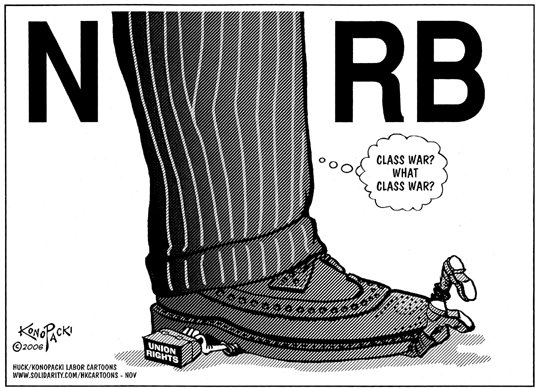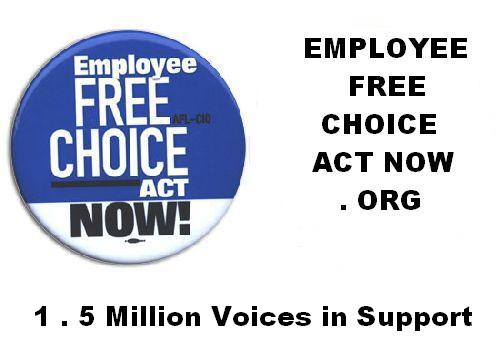| About Us | Contact Us | Calendar | Publish | RSS |
|---|
|
Features • latest news • best of news • syndication • commentary Feature Categories IMC Network:
Original Citieswww.indymedia.org africa: ambazonia canarias estrecho / madiaq kenya nigeria south africa canada: hamilton london, ontario maritimes montreal ontario ottawa quebec thunder bay vancouver victoria windsor winnipeg east asia: burma jakarta japan korea manila qc europe: abruzzo alacant andorra antwerpen armenia athens austria barcelona belarus belgium belgrade bristol brussels bulgaria calabria croatia cyprus emilia-romagna estrecho / madiaq euskal herria galiza germany grenoble hungary ireland istanbul italy la plana liege liguria lille linksunten lombardia london madrid malta marseille nantes napoli netherlands nice northern england norway oost-vlaanderen paris/Île-de-france patras piemonte poland portugal roma romania russia saint-petersburg scotland sverige switzerland thessaloniki torun toscana toulouse ukraine united kingdom valencia latin america: argentina bolivia chiapas chile chile sur cmi brasil colombia ecuador mexico peru puerto rico qollasuyu rosario santiago tijuana uruguay valparaiso venezuela venezuela oceania: adelaide aotearoa brisbane burma darwin jakarta manila melbourne perth qc sydney south asia: india mumbai united states: arizona arkansas asheville atlanta austin baltimore big muddy binghamton boston buffalo charlottesville chicago cleveland colorado columbus dc hawaii houston hudson mohawk kansas city la madison maine miami michigan milwaukee minneapolis/st. paul new hampshire new jersey new mexico new orleans north carolina north texas nyc oklahoma philadelphia pittsburgh portland richmond rochester rogue valley saint louis san diego san francisco san francisco bay area santa barbara santa cruz, ca sarasota seattle tampa bay tennessee urbana-champaign vermont western mass worcester west asia: armenia beirut israel palestine process: fbi/legal updates mailing lists process & imc docs tech volunteer projects: print radio satellite tv video regions: oceania united states topics: biotechSurviving Citieswww.indymedia.org africa: canada: quebec east asia: japan europe: athens barcelona belgium bristol brussels cyprus germany grenoble ireland istanbul lille linksunten nantes netherlands norway portugal united kingdom latin america: argentina cmi brasil rosario oceania: aotearoa united states: austin big muddy binghamton boston chicago columbus la michigan nyc portland rochester saint louis san diego san francisco bay area santa cruz, ca tennessee urbana-champaign worcester west asia: palestine process: fbi/legal updates process & imc docs projects: radio satellite tv |
printable version
- js reader version
- view hidden posts
- tags and related articles
The First Phase Needed in Passing the Employee Free Choice Act is to Overturn the NLRBby Employee Free Choice Act Now .Org Sunday, Feb. 15, 2009 at 10:38 PMCard Check Ruling on Dana-Metaldyne.
The National Labor Relations Board (NLRB) rewrote in September a 40-year-old doctrine that will undermine one of labor’s more successful organizing tactics—card-check recognition. Card check allows workers to gain union recognition by a simple majority show of authorization cards. This tactic is usually spelled out in a “neutrality” agreement in which an employer agrees not to attack the union while it recruits the majority necessary to gain recognition. Card check, neutrality, and other forms of voluntary recognition have been considered legitimate since the National Labor Relations Act was validated by the Supreme Court in 1937. The September ruling, known as Dana/Metaldyne—the name is drawn from the two auto-parts plants involved—concerns a pair of factories where the United Auto Workers gained recognition through card check in 2003. In both cases, the UAW had contracts at other units with the companies and had negotiated a neutrality and card-check agreement. Also in both cases, anti-union employees filed a decertification petition within weeks of recognition. http://www.nlrb.gov/shared_files/OM%20Memo/2008/OM%2008-07%20Dana%20Corp%20351%20NLRB%20No%2028.pdf While not outright banning card check or neutrality agreements, the NLRB may have undermined their effectiveness. As soon as a majority gains recognition by a show of cards, the board decided anti-union employees can file for decertification if 30 percent of workers petition for it. ‘BUSH’S BOARD’Nevertheless, the turn to card check and neutrality agreements is a consequence of the undermining of the NLRB procedures over the last 30 or more years. An indicator of the employers’ willingness to break the law has been the rise of Unfair Labor Practices associated with NLRB elections. According the NLRB Annual Reports, the ratio of ULPs to representation elections rose from 2-to-3 in the mid-1950s to almost 9-to-1 in 2006. Another indicator of illegal employer resistance is the number of ULP cases in which union activists fired during a campaign win back pay. Even though the number of representation elections has slumped over the years, the number of back pay awards has risen dramatically. In the 1970s there were about 7,000 representation elections a year and about 7,000 back pay awards each year. In the 1980s the number of elections dropped to about 3,500 a year while pay back awards soared to 20,000 a year. The trend continues to grow. The past four years saw an annual average of 2,500 elections and 28,000 back pay awards. The Dana/Metaldyne decision is just one of 61 rulings pushed through by the Bush-appointed board in September, almost all of which are anti-union. For example, St. George’s Warehouse shifts the burden of proof from employers to fired workers in back pay cases. As Mineworkers President Cecil Roberts said at a rally protesting these NLRB decisions, “This is Bush’s board. This is the Chamber of Commerce’s board…This sure as hell ain’t the labor board.” Over the last two decades, the card check method has gained popularity. To avoid the time, cost and hard feelings caused by Board-sanctioned elections, many companies have seen the wisdom in taking a chance on card check. In their view, if their employees really, truly want to join up, there’s no point in delaying or resisting the inevitable. It goes without saying that organized labor much prefers card check to NLRB elections. Besides the lack of bureaucratic red tape, a card check vote usually (but not always) means that the company won’t resort to stalling tactics or inundate its employees with virulent anti-union propaganda. A couple of years ago, the employees of Dana and Metaldyne voted by card check to join the United Auto Workers (UAW). The card check procedure went off without any major problems. The company was fine with it, the UAW was fine with it, and, because a majority is required to approve it, the majority of the workers were obviously fine with it. But shortly afterward, a group of disgruntled employees petitioned the NLRB, asking that the affiliation be overturned and that a sanctioned union election be held instead. The regional NLRB office denied the request. They ruled that the card check had been done properly, and that these new union members were now required to wait the standard one year before filing a “decertification” petition (a request to leave the union). This one-year “grace period” is an eminently practical restriction. Workers who join a union for the first time are often skittish and uncertain. While they’re excited and optimistic about improving their economic status, they’re also frightened by management horror stories about union thuggery and companies shutting down as the result of strikes. Moreover, these “newbies” generally don’t have a clue as to what the contract bargaining process entails, or what tricks management can use against them. They are unaware that companies, in direct violation of federal labor law provisions requiring them to bargain in good faith, often purposely stall the process, hoping the membership becomes so unnerved and disenchanted that they take steps to decertify. Unlike those aforementioned rare instances where the NLRB forces union recognition on a company, these panicky decertification initiatives are not rare. In fact, they are all too common. The companies know this. That’s why so many of them try to torpedo that all-important, first contract negotiation, hoping to exploit the ignorance and uncertainty of novice memberships. And that’s why the NLRB makes the members wait at least a year before reconsidering. However, in the matter of Dana-Metaldyne, it gets much worse. Despite the regional NLRB’s ruling, a fanatical, anti-union organization called the National Right to Work Legal Defense Foundation jumped into the fray and filed federal charges, claiming that these employees (those who didn’t sign cards) had been deprived of due process. And, in 2007, the Republican-dominated NLRB overruled its regional office. The national NLRB declared that if a minimum of 30 per cent of a workforce signed a petition within 45 days of becoming union members—asking that the card check decision be put aside, and that a full-blown union election be held—it was a legal mandate. Of course, 45 days is a ridiculously small window. Nothing is going to happen in 45 days. Nothing is going to occur in 45 days that confirms or refutes the ultimate viability or productivity of one’s union. The NLRB may as well have made it three days, the standard “buyer’s remorse” period on a credit card purchase. Getting back to the EFCA, everyone agrees that its enactment would be a huge advantage for unions. Even though the Democrats (including both Hillary Clinton and Obama, when they were candidates) have promised organized labor they’ll give the EFCA their very best shot, labor has been left at the altar so many times, you can’t blame them for looking at this thing with a jaundiced eye. What the Obama administration does with this landmark bill remains to be seen. But the Dana-Metaldyne decision is a whole other deal. By appointing new members to the NLRB, as is his right as president—and having an activist Labor Secretary like Hilda Solis leading the charge—Obama can get the Dana-Metaldyne decision overturned. It can be fixed, and fixed immediately. For More Information on EFCA please visit our websites and blog http://www.employeefreechoiceactnow.org http://efcanow.blogspot.com/ http://www.FreeChoiceActNow.Org http://www.LaborUnionResources.Org Tags: Employee Free Choice Act, EFCA, Card Check, Card Check Bill, Hilda Solis, Obama, Dana-Metaldyne,NLRB Decisions, Labor Board Labor Law, Labor Unions,Unions
Report this post as:
Employee Free Choice Act Now .Orgby Employee Free Choice Act Now .Org Sunday, Feb. 15, 2009 at 10:38 PM
For More Information on EFCA please visit our websites and blog
Report this post as:
|




